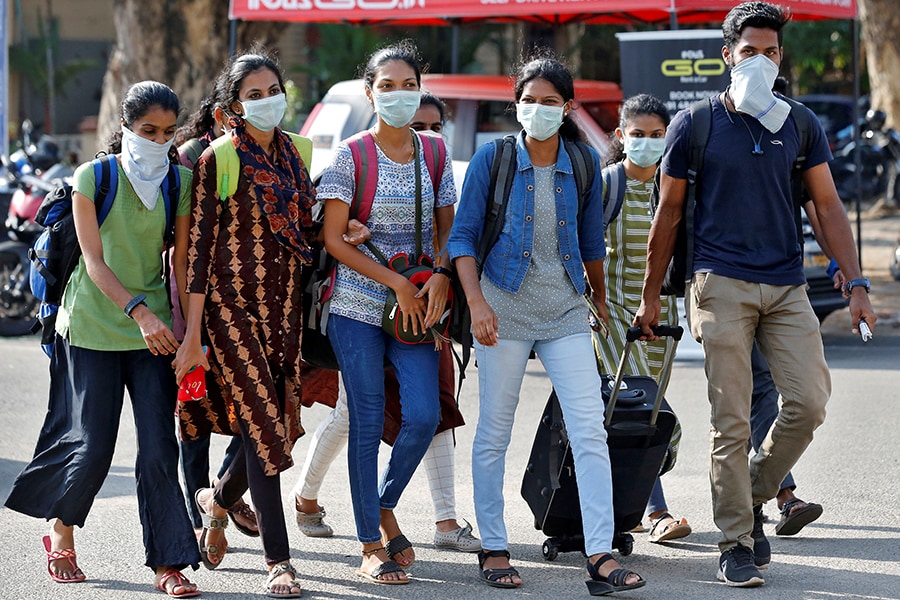
'India needs public health surveillance'
As the Covid-19 situation continues to evolve in India, infectious diseases expert and veteran virologist T Jacob John speaks to Forbes India about the challenges the country faces
 Image: Sivaram V /Reuters
Image: Sivaram V /ReutersQ. What do you think of the way the situation is unfolding in India? Have we been quick/slow on the take?
Using travel history to prioritise persons for screening, testing, quarantining, contact tracing etc. were done well in places like Kerala, Pune etc. For every new importation, the same should apply. Importations should be fewer and far between, on account of stricter travel restrictions and wider country coverage. However, the virus is already implanted in many places where it will amplify.
Q. What peculiar challenges does India face when dealing with this pandemic?
India's health management system is not robust enough to accept a surge of seriously ill persons. We don’t have universal healthcare and many severely ill patients may die without proper diagnosis and supportive therapy. Our government hospitals are not well supported by microbiological diagnostic service—so we will not be able to add on new diagnostics for epidemic diseases. We don’t have “public health surveillance”—every doctor reporting every serious illness to public health officers the day they see a patient—we don’t have public health officers in all districts to take immediate investigative or preventive measures. These are basic requirements in any health management system. Our track record of controlling endemic communicable diseases is not satisfactory—typhoid, cholera, seasonal flu, TB, malaria, dysenteries etc. Controlling them is the training ground for new challenges.
Q. What are the advantages/disadvantages we have in coping with the situation?
Advantages: In general, we have obedient citizens. Disadvantage is the absence of authentic, authoritative, guidance from the government. In that vacuum, social and traditional media step in and create a cacophony. Even in Kerala, tourist guests had to sleep in a cemetery or paddy field. That shows people are not well educated.
Q. We are currently at stage 2, according to experts. In your opinion, will the measures taken so far help in delaying the onset of stage 3?
I dislike the staging approach. That converts thinking brains into check-listing mode, and actions to rituals. This is a contagious epidemic. At each spot with one or more cases, the scene will be evolving and responses likewise have to be flexible. At the most, you may classify states—Kerala and Bihar cannot be in one stage just because both are in India.




